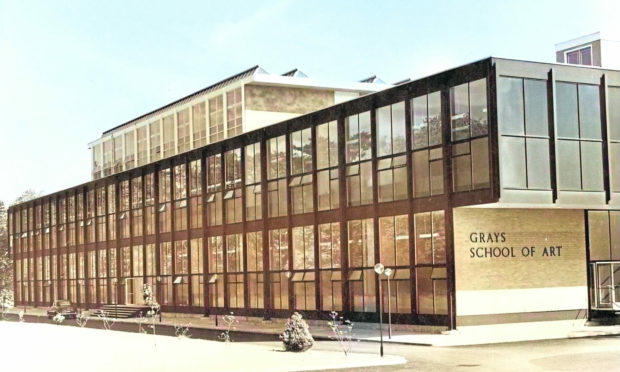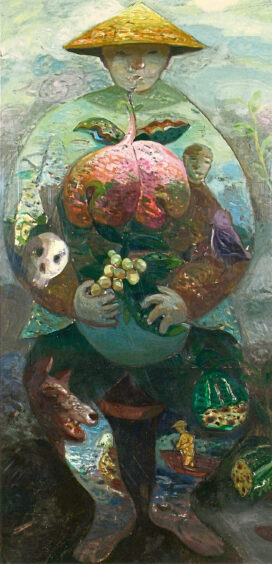This painting titled Arms Full of Memories by Joe Fan represents the idea of longing for home. Fan painted it in 1992, some 13 years after he moved to Aberdeen from his native Hong Kong in East Asia.
He came to Scotland at the age of 17 to improve his English, but he found his true calling to be an artist after he discovered Gray’s School of Art in Aberdeen.
This painting invites an exploration of memory and remembrance of things past. It is a work from memory. All the objects and people portrayed in the painting are the embodiment of the past, frozen in one’s memory, and they have a significant meaning in the life of the artist.
For Joe Fan, as the title of this painting suggests, art becomes a place to preserve memories of his home. Most of the objects in the painting such as a skull, the lotus stalks and pomelo, a large citrus fruit from East Asia, are all associated with offerings for a ritual ceremony in which people pay their respects to their ancestors and the dead.
The style of composition also recalls a religious altarpiece where the saints are often portrayed with the emblems of their martyrdom to remind the viewers who is being shown and of their story. The central figure in this painting can be seen as a martyr, bearing the symbols representing his home which he had lost or left behind. The golden Asian conical hat he is wearing resembles a halo on his head.
In his introduction for a collection of essays titled Imaginary Homelands (1991), the Indian-born British writer Salman Rushdie quotes the famous opening line of the novel, The Go-Between (1953) by L P Hartley: “The past is a foreign country, they do things differently there.” But Rushdie inverted this idea by writing, “…it is my present that is foreign, and that the past is home, albeit a lost home in a lost city in the mists of lost time”.
We can draw a parallel with this sentiment when looking at Joe Fan’s painting.

